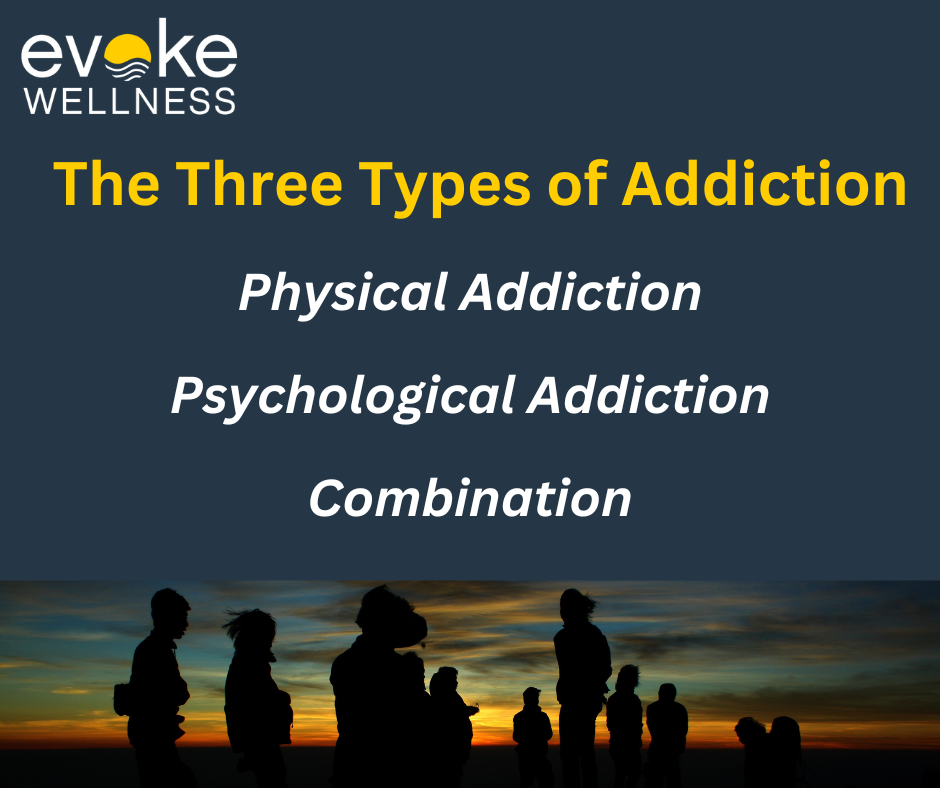You’ve heard the term “addiction” before, but did you know it comes in many forms? Understanding the various types of addiction is crucial for recognizing potential problems in yourself or loved ones. In this comprehensive guide, you’ll explore the major categories of addiction, from substance abuse to behavioral dependencies. We’ll break down the key characteristics of each type, helping you grasp the complexities of these often misunderstood conditions. By the end, you’ll have a clearer picture of how addictions manifest and why they can be so challenging to overcome. Let’s dive into the world of addiction and uncover its many faces.
Call us at (866)429-2960 today or reach out online.
What is Addiction?
An Uncontrollable Habit
Addiction refers to the inability to stop using a substance or engaging in a behavior. It involves an overwhelming urge or craving that leads to compulsive actions despite harmful consequences. The addiction hijacks the brain’s reward system, creating powerful associations with the addictive stimulus.
A Complex Disease
Addiction is a complex disease involving genetic, environmental, and psychological factors. It alters brain chemistry and function, making it extremely difficult to overcome without proper treatment and support. Recognizing addiction as a chronic illness is crucial for destigmatizing it and promoting compassionate care.
The Cycle Continues
Once addiction takes hold, it becomes a vicious cycle. Using the addictive substance or behavior provides temporary relief or pleasure. However, this is followed by negative consequences, guilt, and a strong desire to use again. Breaking this cycle requires a comprehensive approach addressing the root causes and enabling long-term lifestyle changes.
The Three Types of Addiction
Physical Addiction
- Brain chemistry is altered, causing cravings and withdrawal symptoms.
- Common with substances like alcohol, opioids, and nicotine.
- Requires medical supervision to safely detox.
Psychological Addiction
- Compulsive behavior despite negative consequences.
- Often tied to habits, patterns and routines.
- Seen in behavioral addictions like gambling or video games.
Combination
- Most addictions involve both physical and psychological components.
- Treating one aspect alone is rarely sufficient.
- Comprehensive programs address mind, body and life situations.
The type of addiction influences the ideal treatment approach. Understanding the nuances allows for more targeted, effective care tailored to the individual’s needs.
Substance Addiction
The Gripping Cycle
Substance addiction entraps individuals in a vicious cycle. Once hooked, the compulsive pursuit of drugs or alcohol takes precedence over all else. Cravings become insatiable, consumption spirals out of control.
Devastating Effects
Addicts suffer immense physical and psychological damage. Health deteriorates as vital organs bear the brunt. Relationships crumble under the strain. Careers and finances lie in ruins. Yet, breaking free feels impossible.
A Treatable Condition
With professional help and a strong support system, recovery is achievable. Counseling, therapy, and rehabilitation programs equip addicts with coping strategies. Perseverance is key to conquering substance dependence.
Behavioral Addiction
You may have heard of substance addictions like alcohol or drugs. But did you know behaviors can also become addictive? Behavioral addictions involve compulsive engagement in rewarding non-substance-related behaviors.
Common Types
- Gambling addiction
- Internet/gaming addiction
- Sex and pornography addiction
- Exercise addiction
- Work addiction
Key Characteristics
Though not involving substances, behavioral addictions share core features with substance addictions:
- Diminished self-control
- Relationship/work issues
- Feelings of restlessness when unable to engage in the behavior
Seeking Help
If a behavior is negatively impacting your life, don’t hesitate to seek professional support. Cognitive-behavioral therapy and support groups can help regain control.
Process Addictions
Behavioral Compulsions
Process addictions involve compulsive behaviors that interfere with daily life. Common examples include gambling, gaming, internet use, exercise, work and shopping addictions.
While not involving substance abuse, these addictions produce similar effects in the brain’s reward pathways. They are marked by intense cravings, loss of control and negative consequences.
Warning Signs
- Preoccupation with the behavior
- Failed attempts to cut back or quit
- Withdrawal symptoms when stopping
- Tolerance – needing to do it more to get the same effect
- Neglecting responsibilities due to the addiction
Seeking Help
Process addictions can severely impact mental health, relationships and careers. Treatment options include cognitive behavioral therapy, support groups and medication for co-occurring disorders.
Early intervention is key to overcoming compulsive patterns before they cause further harm. With professional guidance, individuals can develop healthier coping strategies.
Signs of Addiction
Physical Changes
- Bloodshot eyes or pupils looking larger/smaller than usual. Sudden weight loss or gain. Looking unkempt or unhealthy.
Psychological Signs
- Mood swings or irritability. Lack of motivation. Appearing anxious, paranoid or confused. Inability to sleep or concentrate.
Behavioral Patterns
- Withdrawing from family/friends. Lying or being secretive. Losing interest in hobbies. Legal/financial troubles. Risky behaviors like stealing.
The key is recognizing any major changes from someone’s normal behavior and personality. If multiple signs persist, addiction may be the root cause. Early intervention provides the best chance for successful recovery.
Getting Help for Addiction
Reaching Out
Admitting you need help is the first courageous step. Speak to a loved one, counselor or doctor about your struggles. Many free support hotlines and online resources are available.
Find a Treatment Program
Research addiction treatment options in your area, considering inpatient rehab, outpatient programs or support groups. Evidence-based therapies, medications and holistic approaches can aid recovery.
Build a Support System
Surrounding yourself with people who support your sobriety is crucial. Rebuild trust with family and make new connections through peer groups. Overcoming addiction requires consistent encouragement.
FAQ About Types of Addiction
What are common addictions?
- Substance addictions like alcohol, nicotine, opioids, and other drugs.
- Behavioral addictions like gambling, gaming, food, sex, and work.
How do addictions develop?
Addictions often start with seeking pleasure or relief from stress. Over time, the brain becomes rewired, creating strong cravings and compulsions. Genetics and environment also play roles.
Are some addictions more harmful?
While any addiction can be destructive, those involving substances tend to have more severe physical and mental effects. But behavioral addictions can also devastate lives and relationships. The type matters less than addressing the root causes.
Conclusion
In closing, understanding the varied faces of addiction is crucial for recognizing and addressing these complex issues. As you’ve learned, addiction takes many forms beyond just substance abuse:
- Behavioral addictions
- Process addictions
- Relationship addictions
By familiarizing yourself with the signs and symptoms of different addiction types, you’re better equipped to identify potential problems in yourself or loved ones. Remember, addiction is a treatable condition, and help is available. Whether it’s professional treatment, support groups, or lifestyle changes, there are paths to recovery for every type of addiction. Stay informed, stay compassionate, and don’t hesitate to seek help when needed. Your knowledge could be the first step in someone’s journey to healing.
Begin Your Journey with Evoke Wellness
If you or a loved one is considering treatment, Evoke Wellness invites you to contact us. Our compassionate team is ready to answer your questions, discuss your needs, and help you take the first steps toward recovery. At Evoke Wellness, you will find more than just a treatment program – you’ll discover a community dedicated to your wellness and success. Together, let’s embrace the journey to recovery and the promise of a new beginning. Call us at (866)429-2960 today or reach out online.



